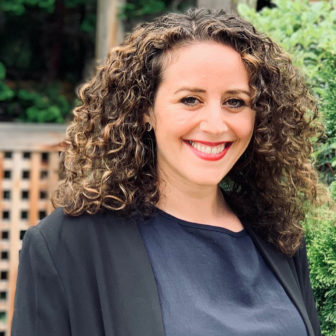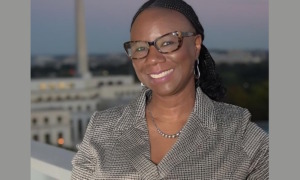
Martin Novak/Shutterstock
.
This summer, stories of now-deceased wealthy financier Jeffery Epstein’s sexual exploitations rocked the country. The girls Epstein exploited were mostly young, poor, in foster care or on the verge of homelessness. This story is all too common: Those most vulnerable in our society are also most susceptible to abuse — and, in a cruel twist, often face criminal prosecution themselves as a result of that abuse.
The number of commercially sexually exploited children (CSEC) in the United States is notoriously hard to pinpoint, due in large part to the lack of standardized identification practices, the underground nature of the crime and the reluctance of victims to come forward. National estimates of CSEC range from 100,000 to 3 million.

Shoshana-Wineburg
But we do know who traffickers often target: children who have suffered trauma, poverty and family dysfunction. Indeed, a history of child mistreatment or abuse is the most common risk factor for commercial sexual exploitation. Youth homelessness is another risk — with one study finding that at least one-fifth of homeless youth reported some form of labor or sex trafficking. Child welfare involvement has an even higher correlation. CSEC with histories in child welfare range from 60% to upwards of 85%.
In 2000, Congress first responded comprehensively to the prevalence of labor and sex trafficking by passing the Trafficking Victims Protection Act (TVPA). The statute criminalizes “severe form[s] of trafficking,” defined as a commercial sex act “induced by force, fraud, or coercion, or in which the person induced to perform such act has not attained 18 years of age.”
The TVPA specifies that children under the age of 18 cannot be prosecuted for the crime of prostitution: They are victims of sex trafficking. It rests on the states, however, to implement this provision.
The TVPA fundamentally shifted our country’s understanding and legal response to child prostitution. It recognized CSEC as victims, rather than perpetrators, of a crime. By 2018, almost half the states in the country had passed some version of laws barring or limiting prostitution charges against trafficked minors.
Washington state legislation
In 2010, Washington state positioned itself as a national leader in combatting sex trafficking. The passage of SB6476, known as Safe Harbor, gave law enforcement the ability to divert CSEC from the courts to programs specializing in housing and comprehensive services. But while the statute acknowledged trafficked youth as victims, entitled to benefits from the Crime Victim’s Compensation Fund, it also defined them as criminals, vulnerable to charges for prostitution. In other words, despite federal law, minors in Washington could still be detained for their own abuse.
Last year Washington took an important step to fix the contradictions in its 2010 Safe Harbor legislation. HB 1775/SB5744 finally exempted minors from arrest for and charge of prostitution and established two receiving centers to provide therapeutic services. But both bills ultimately died in fiscal committee.
Exempting minors from charges of prostitution raises difficult challenges. For example, how can the state keep trafficked youth safe and secure outside the criminal justice and correctional systems? How can law enforcement best investigate trafficking crimes while respecting the civil rights of those trafficked? And, how do we prevent the unintended consequence of incentivizing the trafficking of minors if CSEC can no longer be arrested or charged with a crime?
But these questions also present opportunities. Removing the threat of arrest compels us to expand social services for CSEC outside the justice system. It spurs innovative victim advocacy programs. And it sends a clear message: The state will not wield charges of prostitution to scare victims into coming forward. It will honor them in the process of enforcement.
As we approach the 2020 legislative session, Washington lawmakers have an opportunity to comply with federal law and disrupt the sexual abuse to prison pipeline. In accordance with Congress’ example and the voices of survivors, we should treat CSEC with the victim-centered, trauma-informed protocols developed specifically for these situations. If there’s one thing we can take away from recent headlines, it’s that we can’t afford to wait.
Shoshana Wineburg is the director of public policy and communications at YouthCare. She holds a BA from Stanford University and a Master of Social Work from the University of Washington.































